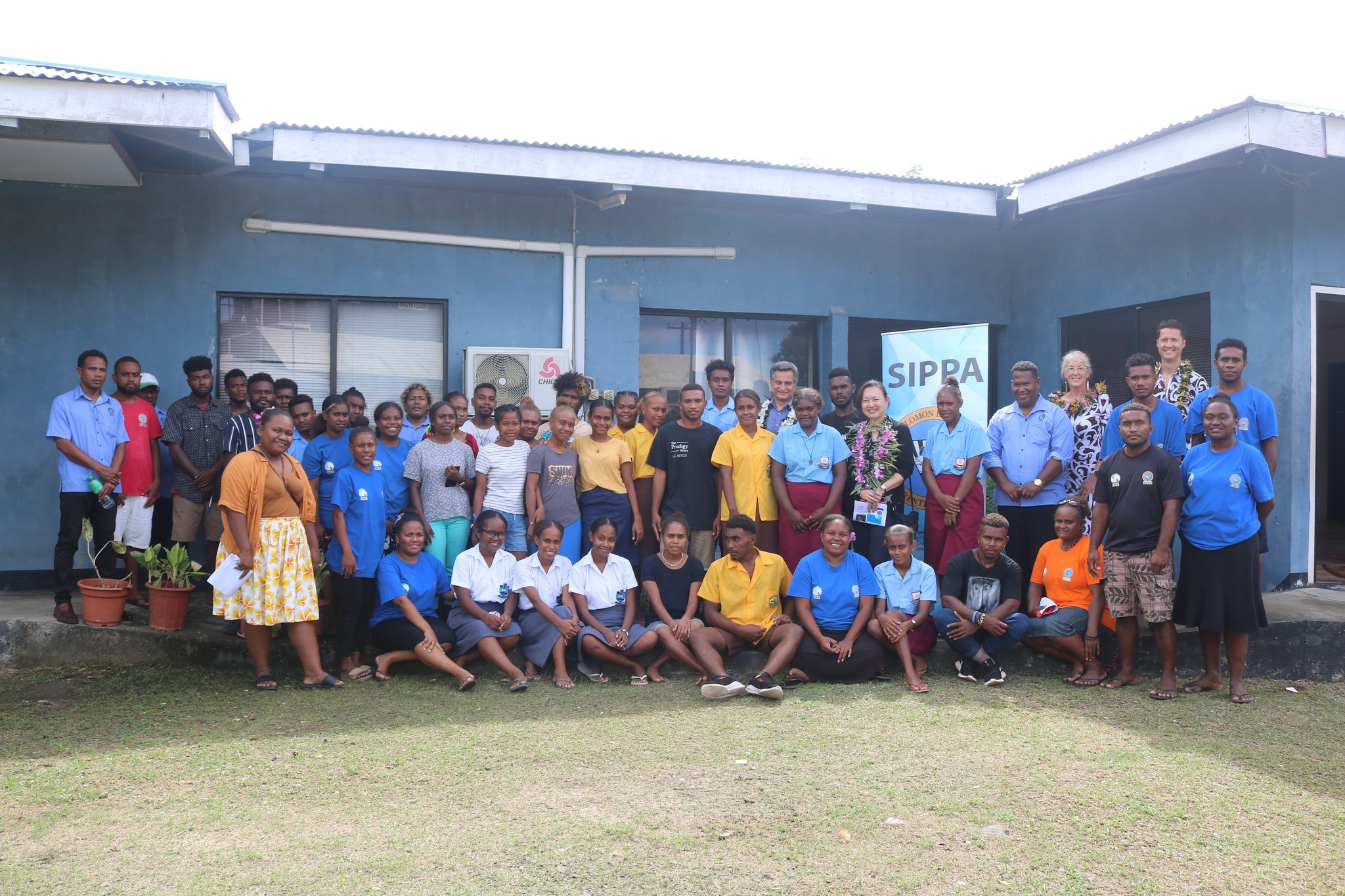
Spotlight
A selection of news from across the Federation

IPPF Statement on the 68th session of the Commission on the Status of Women (CSW)
IPPF welcomes the agreed conclusions of the 68th session of the Commission on the Status of Women (CSW), on the theme of “Accelerating the achievement of gender equality and the empowerment of all women and girls by addressing poverty and strengthening institutions and financing with a gender perspective”. IPPF actively engaged in the process by providing technical inputs to Member States, raising awareness about the interlinkages between SRHR, poverty, gender equality and the empowerment and human rights of all women and girls.
Filter our news by:


| 11 August 2023
Australia's New International Development Policy Sets out a Clear Pathway
Australia’s new International Development Policy was launched this week with a focus on building a peaceful, stable and prosperous region. Announced as the first long term development strategy in almost a decade, it was welcomed by those in the development sector. In contrast to the former government, Australia’s Foreign Minister has committed to rebuilding their ODA budget. While this is likely to be a slow build, with no ODA/GNI targets set, the new policy sets out a clear pathway. IPPF welcomes the policy’s approach to localisation, the strong focus on climate resilience and humanitarian action, the commitment to gender equality and LBGTQI+ rights and the ongoing support for sexual and reproductive health and rights. The new policy has a strong focus on Australia’s role as a development partner in the region. While the geographic focus remains unchanged, the approach is quite different. At the launch, Minister Wong highlighted the importance of sovereignty, where ‘each country can determine its own fate’. In practice for DFAT, this will mean greater accountability at post, more collaborative development of country Development Partnership Plans, more frequent progress reviews and a greater emphasis on implementing learning from evaluation. It also translates to greater investment in local solutions, including funding to support partner governments, local procurement, and civil society. The announcement of a new Civil Society Partnership Fund was well received, although details are lacking. The other underlying theme which differs dramatically from previous aid policies is climate change, recognised by the Minister as the greatest shared challenge for the region. DFAT plans to increase climate investments and better address climate risk with a target that half of bilateral and regional investments must have a climate objective by 2024-25, increasing to 80% by 2028-29. The policy also references a new humanitarian strategy, which will complement the aid policy and is due to begin consultation in September. Inclusion is a high priority within the policy. Minister Wong highlighted the importance of a region where ‘all can thrive and reach their potential’. Three focus areas for inclusion are Gender Equality, Disability Inclusion and LGBTQI+ rights, with supporting strategies in development, due for completion by the May budget 2024. The government is reinstating the target for 80% of development investments to address gender equality and a new requirement for investment over $3m to include gender equality objectives. While health is not a focus area within the policy, it was mentioned as part of infrastructure programming. The policy notes the vulnerability of many health systems in the region and Australia’s continued role to strengthen capacity and support prevention and response for both infectious and non- communicable diseases. There is also a commitment to expand universal health coverage and a specific mention of support for sexual and reproductive health and rights. Resourcing for international development is explored in detail. Responding to the findings of the Development Finance Review and recognising the limitations of ODA funding, the policy proposes an increase in blended finance, and an investment of up to A$250m to leverage private investment. This will be supported by a new unit in DFAT to work with philanthropy and impact investment. The policy also highlights changes to reporting and accountability within DFAT, greater transparency of results, and increased investment in DFAT development capability (36.8m announced in the May budget). Since the integration of AusAID into DFAT in 2013, international development has been a low priority in Australia, undervalued and diminished through multiple budget cuts. The Albanese government has promised something different. While the lack of an ODA funding target is disappointing, this policy is a step in the right direction. The recognition of shared challenges and shift towards genuine engagement highlight an understanding of the value of development work, not just for beneficiaries but for the region as a whole. Together with DFAT’s investment in development capability and shift to a whole of government approach and Minister Wong’s outspoken commitment to the 2030 Agenda for Sustainable Development there are strong indications that Australia is taking development seriously. As recipients and partners of the Australian International Development program, IPPF look forward to supporting the roll out of the new Australian International Development Policy, consulting on the strategies and participating in the design of new programs. We hope to see the collaboration continue and the funding match the ambition. IPPF works closely with the Australian government and is funded through the Department of Foreign Affairs and Trade to integrate sexual and reproductive health and rights (SRHR) into humanitarian preparedness response and recovery through SPRINT; to restore services, particularly to marginalized populations impacted by COVID-19 through RESPOND and to support the ambitious Pacific Niu Vaka Strategy Phase 2, enabling quality SRHR to be realised for everyone in the Pacific. To read the full policy, click here. Cover illustration by Edinah Chewe for The Greats.

| 28 March 2023
IPPF’s Director General Visits Solomon Islands and Australia
The Director General of the International Planned Parenthood Federation (IPPF), Dr Alvaro Bermejo, is in Australia this week for high level meetings with Australian Government Ministers and the Australian Department of Foreign Affairs and Trade (DFAT). He is joined by Ms Tomoka Fukuda, Regional Director of IPPF’s East and Southeast Asia and Oceania Region (ESEAOR) and Ms Phoebe Ryan, IPPF’s Chief of the Australia and New Zealand Office. In Australia, Dr Bermejo has been privileged to meet with Australia’s Minister for International Development and the Pacific, the Hon Pat Conroy. Together, they discussed how Australia can play a leadership role in advancing sexual and reproductive health and rights through Australia’s international development cooperation.

| 09 August 2018
The Argentinian Senate voted narrowly against a bill that would have legalized abortion up to 14 weeks
The Argentinian Senate voted narrowly against a bill that would have legalized abortion up to 14 weeks. The vote tally was 31 in favour, 38 against, 2 abstentions, and 1 absence. Giselle Carino, IPPF Western Hemisphere Region’s Director (IPPF/WHR) and CEO, issued the following statement: "Today, the Argentinian Senate failed women by voting to maintain a status quo that leads to anguish, forced pregnancy, and preventable death. This compassionless vote denies women’s lived experiences, evidence-based public health policies and international agreements. While the senate has demonstrated that they are out of touch, women will not retreat. Tens of thousands of women organized, mobilized, and took to the streets to support this bill, and their courage have inspired activists across Latin America to share their stories and take on the stigma that too often keeps abortion care out of public discourse. We stand firmly and in solidarity with all women until forced pregnancies become a thing of the past—until all women are treated as equals.” While current law in Argentina technically permits a woman access to abortion services when her life is in danger, or when the pregnancy is the result of rape, the true issue is one of accessibility: Women with fewer economic and social resources have less access to care than upper-class women in urban centers. Dr Alvaro Bermejo, IPPF’s Director General: “Poor women bear the brunt of these restrictive laws and will continue to pay with their health and lives until abortion is decriminalized and becomes an integral part of sexual and reproductive health care. IPPF congratulates our partners, civil society and all the activists who fought so valiantly for women’s rights. We will continue working closely with our partners and allies in Argentina in the fight for sexual and reproductive rights for all. ”














